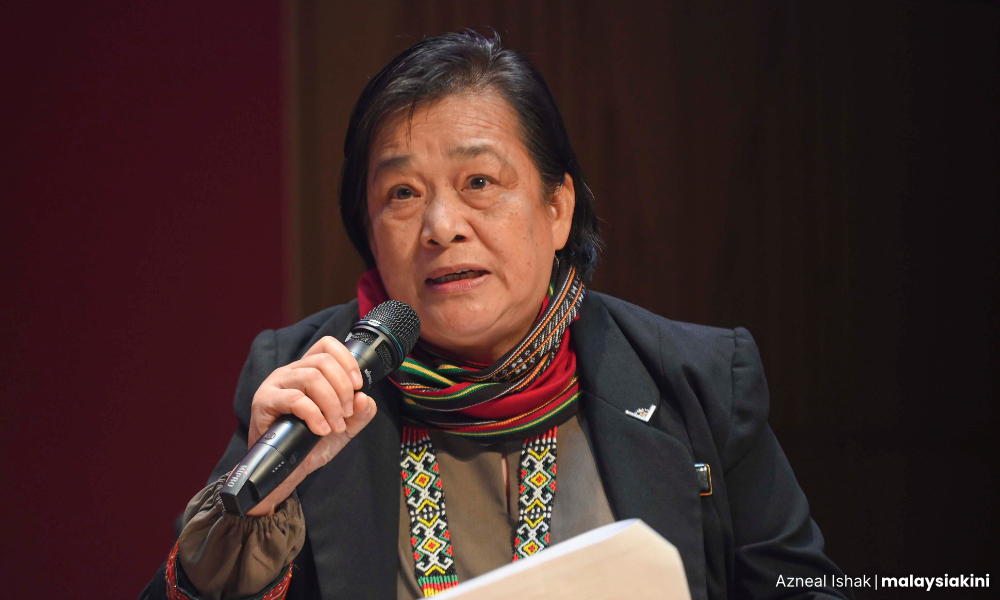Men, more often than women, fail to uphold syariah laws regarding marital obligations, Sisters in Islam (SIS) executive director Rozana Isa told a forum in Kuala Lumpur today.
She pointed out that men do not face proportionate consequences for flouting court orders, particularly concerning their obligation to provide adequate financial maintenance (nafkah) to their spouses.
"Even though the courts have issued the necessary documents that the fathers or the husbands must pay for the maintenance. But these are let off quite blatantly and easily. Men are not punished for their bad behaviour.
"Men are allowed to not only get away with these, but you know these ‘alien’ fathers (fathers who are not present). You know, they are allowed to get away with being irresponsible.
"So how do we deal with that? We're not shaming them. If anything, you know we're putting more pressure on the mother," she said to a resounding applause from participants at the International Women's Day Forum 2024 themed "Invest in Women, Accelerate Progress In Malaysia".
Rozana (above) further commented that the discussion on enacting laws and policies influenced by Islamic thought should be inclusive of all races and cultural backgrounds.
"Because the reality is, if we have laws and policies that are going to be made based on Islamic thought and sources, then as Malaysians, everybody has a right to talk about it. Everybody," she added.
Rozana was one of three panellists who discussed the topic of "Investing in Women and Girls, A Human Rights Imperative" alongside the Development of Human Resources for Rural Areas Malaysia social protection director Maalini Ramalo and Pacos Trust founder Anne Lasimbang.
Legal landscape in Sabah, S’wak
Highlighting the unique legal landscape in Sabah and Sarawak, Lasimbang sheds light on the coexistence of three distinct legal systems - native law, civil law, and syariah law.

"As indigenous communities, we have what is called the native law," she explained. "So, you can imagine we have to deal with these three systems.”
Lasimbang emphasised that the native laws predate the civil and syariah laws in the region.
"Native law has been there before syariah and civil law, and it's quite fluid because it is based on the worldview of the community," she explained.
According to Lasimbang, this worldview centres around the concept of balanced relationships - between humans, and between humans and the environment.
"How native law is operated is through the worldview of the indigenous community, where it's based on relationship - human to human and also to the environment. This relationship must be balanced, and there is reciprocity," she said.
Women, Family and Community Development Minister Nancy Shukri, who officiated the forum, said that when women are uplifted, the nation thrives.
She outlined a comprehensive plan to tackle key issues which included zero tolerance for gender-based violence, enhancing women's economic participation, increasing their presence in policymaking, and bolstering their role in environmental efforts.
Stressing that investing in women translates to investments in national development, she called for a collective effort across all ministries and sectors.
"At the heart of all my ministry's efforts is our collective efforts towards increasing female economic agency.
"It is central to achieving gender equality and promoting the well-being and prosperity of our families, societies and economies," she added.
UN Women’s agenda
In its agenda for the year, UN Women has highlighted five key areas that require concerted action to prevent women from being marginalised.
Foremost, it emphasised that investing in women is not only a human rights obligation but a crucial foundation for building inclusive societies.
Additionally, the UN body called for intensified efforts to eradicate poverty, urging nations to adopt gender-responsive financing mechanisms.
It also advocated for a transition towards a green economy and a care-oriented societal model that recognises and supports unpaid care work.
Furthermore, UN Women stressed the need to empower and enable feminist advocates and change-makers who are driving transformative progress in their communities and nations. - Mkini




No comments:
Post a Comment
Note: Only a member of this blog may post a comment.